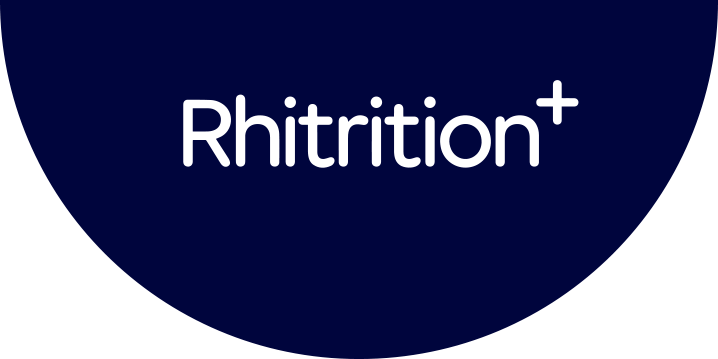Vitamin B12: Needs, Sources, Benefits & Deficiency
Article by Rhiannon Lambert, BSc MSc RNutr
Vitamin B12 is a type of B vitamin, which is water soluble and has a range of functions within the body and is extremely important for our energy metabolism.
Why do I need Vitamin B12?
Along with folate it helps to produce red blood cells
Helps maintain a healthy nervous system
Aids the release of energy from food
Vitamin B12 & Pregnancy
Reviews into past studies found that, for women trying to become pregnant naturally, folic acid such as Rhitrition+ Folic Acid, vitamin B12, omega-3 fatty acids, and Mediterranean-style diets were linked to increased fertility.
Vitamin B12 aids egg formation, ovulation, and folate metabolism in the body and nervous system so it is important in pregnancy. When supplementing look for cobalamin, or, ideally, the activated form, methylcobalamin. It’s especially important to supplement in pregnancy if vegan as plant foods are low in this vitamin.
Sources of Vitamin B12
Meat
Fish
Cheese
Milk
Eggs
Some fortified breakfast cereals
Nutritional yeast
Animal products are most people’s main source of vitamin B12, so if you are not eating any animal foods. Most plant-based sources can’t be processed by the body, although you can sprinkle nutritional yeast on meals and it is recommended to take a daily supplement, such as Rhitrition+ Vegan Multivitamin.
Seaweed, algae, spirulina and fermented plant foods like miso are not good sources of vitamin B12. They contain an inactive form of the vitamin, which cannot be used by the human body. The vitamin B12 found in beer, fermented foods and yeast is not a reliable source either, as other ingredients within these products actively reduce Vitamin B12 absorption.
Vitamin B12 supplements are strongly recommended for individuals following a vegan diet. It may be wise to visit your GP to periodically check your B12 and homocysteine levels. Aim to eat either fortified foods at least twice a day, along with a vitamin B12 supplement.
How much Vitamin B12 do I need?
The NHS states that adults aged 19 to 64 need 1.5μg of vitamin B12 per day. If you consume meat, fish and other animal products you should be able to get enough vitamin B12 from your diet alone.
Those who follow a vegan or plant-based diet are unlikely to consume enough so are therefore recommended to supplement. Although Vitamin B12 can be found in fortified foods such as: breakfast cereals, unsweetened soya drinks, yeast extract e.g. Marmite.
Vitamin B12 deficiency
A lack of vitamin B12 can lead to vitamin B12 deficiency anaemia. Too little can result in fatigue, anaemia and nerve damage. B12 deficiency affects the central nervous system and the body’s ability to produce fully functioning red blood cells, which carry oxygen around the body.
If you believe you have a nutritional deficiency, speak to your doctor. Blood tests can help to diagnose deficiencies, and supplements can then be prescribed to help correct them.
Who’s at risk of deficiency
People following a vegan or plant-based diet
The elderly, due to reduced consumption and absorption
Those who have had surgery which has removed the vitamin B12 absorbing part of the bowel
Those on metformin for diabetes
Anyone taking long-term antacid drugs for heartburn
Signs of deficiency
As well as the symptoms listed below, severe deficiency can lead to nerve damage and cardiovascular disease.
Extreme tiredness or fatigue
Pins and needles
Lack of energy
Sore or red tongue
Mouth ulcers
Visual disturbances
Muscle weakness
Psychological problems which can include depression and confusion
Memory and understanding issues
Treatment For Vitamin B12
B12 supplements are strongly recommended for individuals following a vegan diet to ensure they are getting their daily dose so that they receive the benefits of this vitamin and avoid deficiency. Always buy supplements from a reputable source, do not source them from an unknown company on the internet as you cannot guarantee what is in them. Always check the label as it should tell you the amount in each dose and should have an expiry date.
In some instances vitamin B12 deficiency can be treated with an injection of hydroxocobalamin twice a year. You can have a hydroxocobalamin or cyanocobalamin vitamin B12 injection but the former is recommended as it stays in the body for longer. If you are looking to learn more about hydroxocobalamin, you can find out more about here.
If you have vitamin B12 anaemia then it is likely that there will be a recommendation for injections first. This is likely to be every other day for two weeks or until your symptoms have started improving.
Following this, your treatment plan will vary depending on the reason for the deficiency, such as neurological problems or diet. The most common cause of vitamin B12 deficiency in the UK is pernicious anaemia, which is not related to your diet.






